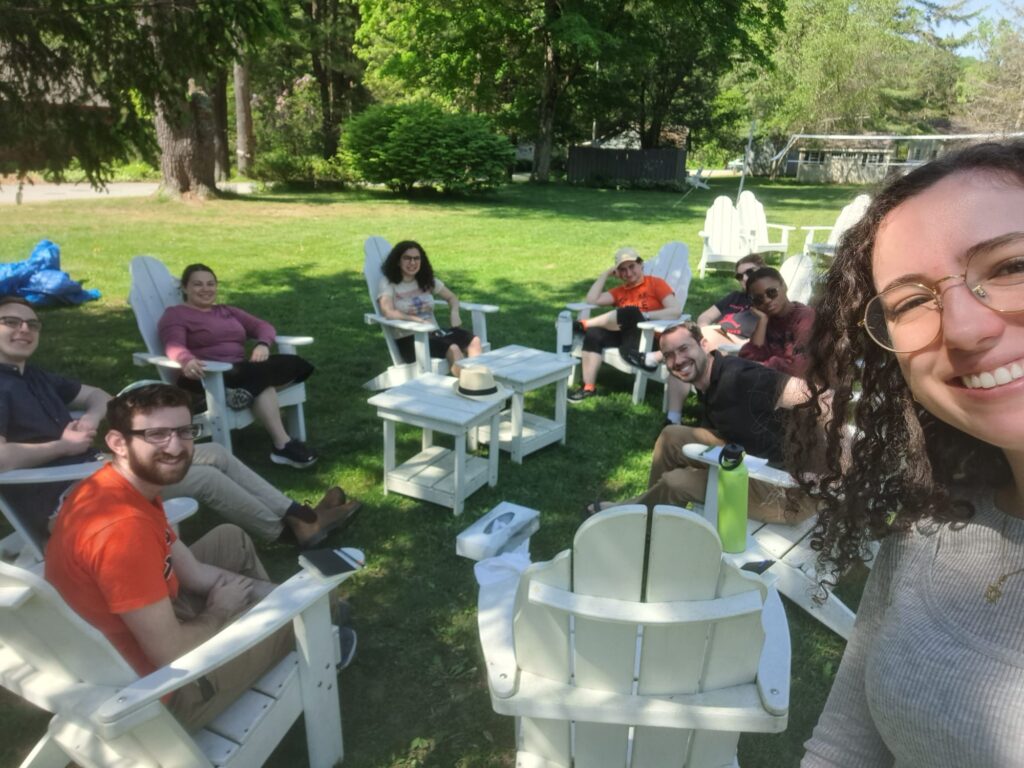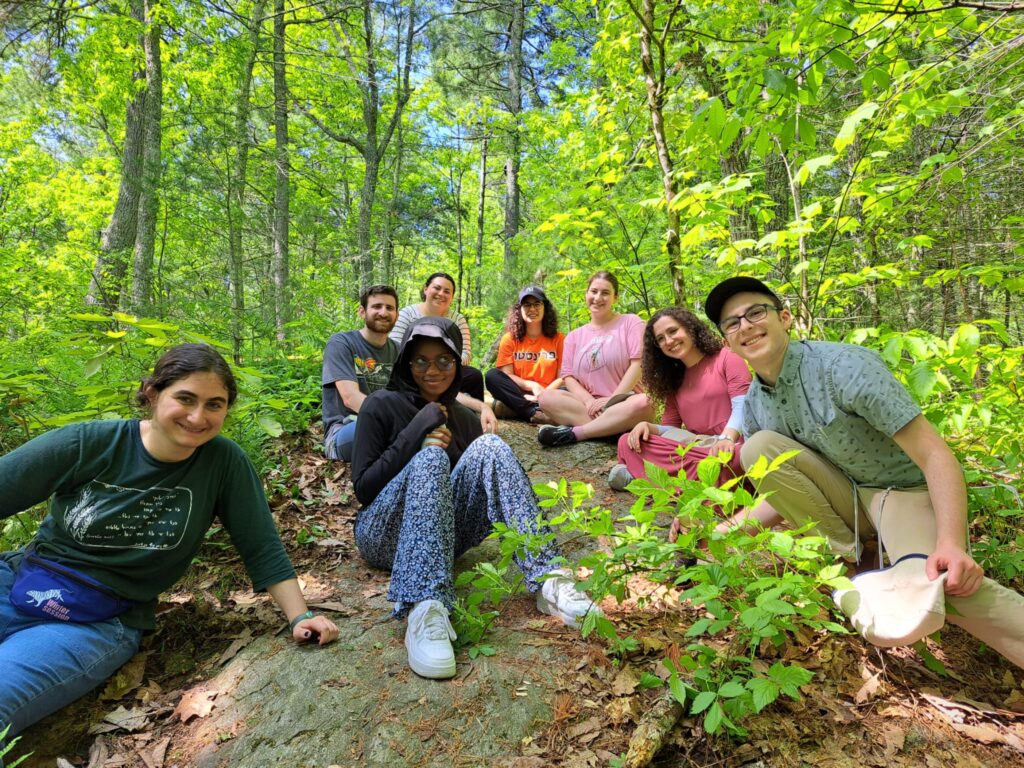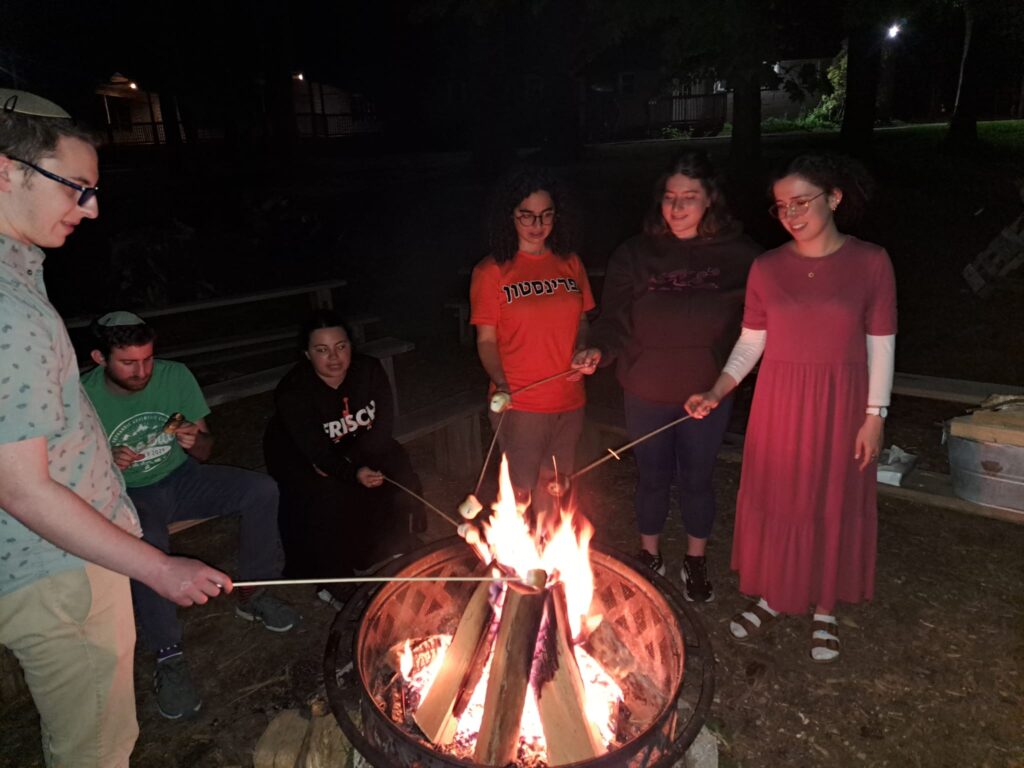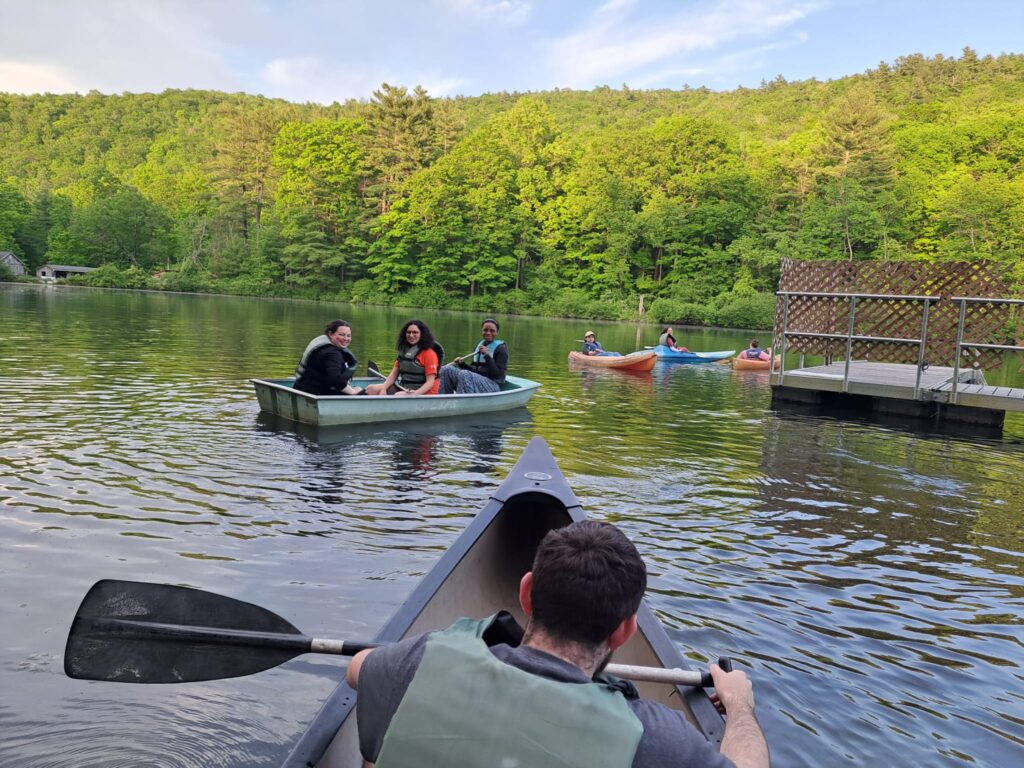In the tranquil days between May 19th and 22nd, a meaningful journey unfolded under the guidance of Rav Azi Horvitch, the JLIC Director at Princeton University. This Chasidic retreat, named “Liba Ba’ey,” (G-d seeks the heart) was a heartfelt pilgrimage into the depths of Jewish spirituality and a dream realized for Rav Azi.
The retreat commenced on a serene Sunday evening at the Horvitch home, where eight eager students gathered. From Monday to Wednesday, the group moved to the Isabella Freedman Jewish Retreat Center in Connecticut, a place where nature’s embrace complemented their spiritual quest.
This retreat was part of a broader journey for many of the participants. Six out of the eight students had attended a series of six sessions on Chasidut taught by Rav Azi earlier in the semester. These sessions focused on some of the main ideas of Chasidut, laying a foundation that was further built upon during the retreat.
Throughout those days, the focus was clear: prayer, the core of our Avodat Hashem, was to be explored and deepened. Rav Azi, with his wisdom and gentle guidance, led the group through various spiritual exercises and discussions, enriching their souls with profound insights. The retreat was a combination of learning and practicing, creating a tapestry of experiences that each participant would carry with them long after the retreat ended.
Rav Azi had meticulously prepared a textbook, a compilation of sacred sources and teachings, which served as their guide. Through this, they delved into the intricacies of prayer, exploring its beauty and significance in their daily lives. One of the pivotal aspects of the retreat was the practice of Hitbodedut, a form of meditative prayer that allowed each participant to converse with the Divine in their unique way. This exercise, amidst the serene backdrop of Connecticut’s natural beauty, provided a space for deep introspection and connection.
Learning and sharing were at the heart of the retreat. The group engaged in thoughtful discussions, reflecting on the teachings and how they could be applied in their lives. Each session brought new insights and a deeper understanding of their faith.

The retreat wasn’t solely about solemn reflection. It was also filled with moments of joy and camaraderie. Activities such as kayaking allowed the group to bond in the splendor of nature, while a kumzitz around a bonfire, complete with roasting marshmallows, added warmth and light to their evenings. These moments of shared laughter and song fostered a sense of unity and family among the participants.

Rav Azi reflected on this journey with a sense of fulfillment, recognizing the retreat as a necessary pause from the hurried pace of daily life. It was a time to listen more closely to the soul, to attune to its constant prayer, as eloquently described by Rav Kook: “Prayer comes in its perfected form only with the consciousness that the neshama (the soul) is always praying… It is only that, in the time of active prayer, the soul’s ceaseless prayer is revealed in actuality.”
This essence of continuous, inner prayer was the heartbeat of the retreat. It was about uncovering the soul’s persistent call, a divine whisper that often gets lost in the noise of everyday life. Rav Azi hoped that each participant had moments where they felt and heard this inner voice, a connection to their soul’s perpetual prayer.

Upon returning from the retreat, Rav Azi sent a heartfelt note to his students, encapsulating the experience and the transition back to daily life. He wrote, “I feel like I’m still transitioning from those special days to the day to day. I think that we can say that what we did was to try and listen more carefully to our soul, that as Rav Kook describes, is always praying. I hope we all had a moment or two in which we felt and heard even the slightest voice coming from the depths of our soul and that we can take something with us that will help us listen to our soul in the future. Thank you all for your insights, thoughts, singing and jokes. It was really special and enjoyable.”
The impact of the retreat was profoundly felt by the participants. One student, in a note of gratitude, expressed, “Hello Rav Azi, I would like to thank you. I learned and enjoyed it more than I expected. I got to get closer to the other participants, to God, and to myself. Thank you for dreaming up and initiating and managing this experience.”
In those few days, the retreat became more than an event—it was a transformative journey. It offered a sacred pause, a moment to breathe, reflect, and connect with the Divine and each other. The bonds formed, the prayers shared, and the insights gained became a part of each participant’s spiritual tapestry. As they returned to their daily lives, they carried with them a renewed sense of purpose and a deeper connection to their faith, a testament to the enduring power of such sacred gatherings.
This retreat, Liba Ba’ey, was indeed a special journey of the heart that Rav Azi and his students will cherish forever.
Reach out to any of our Directors to learn more about JLIC and to support our programming.
Related Posts
A Journey Through Israel with Rav Azi and Atara Horvitch
Commemorating Yom Hazikaron: Reflections from Princeton University Students